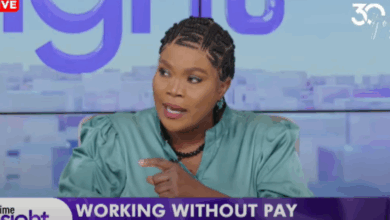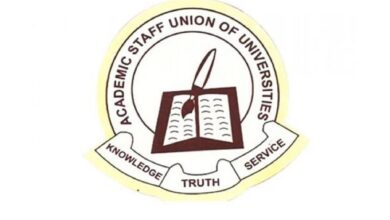Constitutional analysis on Cabinet’s authority to approve payments


Social media is awash with excepts of news item attributed to the finance minister and the Minister of Education to the effect that Social media is awash with excepts of news item attributed to the finance minister and the Minister of Education to the effect that Cabinet authoritsed, in one case and in another, approved the payment of certain sums of money to certain categories of public servants. The Daily Graphic carried a front headline to the same effect.
Whilst the claims that Cabinet approved or authorised any payment remain unverified, they non-the-less present a useful platform to shed some light on some relevant constitutional provisions for the edification of the public.
This discussion shall hinge on the following questions:
(1) Who is the President and what is his role?
(2) What is Cabinet and what is its purpose?
WHO IS THE PRESIDENT?
The President is created by article 57(1) of the 1992 Constitution. The said article provides as follows: “There shall be a President of the Republic of Ghana…” Article 58(1) to (3) are equally germane. Article 58(1) provides as follows:
“The executive authority of Ghana shall vest in the President and shall be exercised in accordance with the provisions of this Constitution.” Article 58(2) provides as follows: “The executive authority of Ghana shall extend to the execution and maintenance of this Constitution and all laws made under or continued in force by this Constitution.” Article 58(3) provides as follows:
“Subject to the provisions of this Constitution, the functions conferred on the President by clause (1) of this article may be exercised by him either directly or through officers subordinate to him.”
The salient points for the purpose of this discussion are:
(i) The President is the repository of the executive authority of Ghana.
(ii) The executive authority of Ghana includes the maintenance of this Constitution and all laws made under or continued in force by the Constitution.
(iii) The President may exercise the executive authority either by himself or through officers subordinate to him.
The Labour Act, 2003 (Act 651) provides for the employer to pay the employee. Public Servants are employees of the Government. Paying them is an executive function to be performed by the President directly or through his appointed subordinates.
WHAT IS CABINET AND WHAT IS ITS PURPOSE?
Cabinet is a creature of the Constitution. Article 76(1) that creates it provides as follows:
“There shall be a Cabinet which shall consists of the President, the Vice President and not less than ten and not more than nineteen Ministers of State.” A related article, 76(2) provides as follows:
“The Cabinet shall assist the President in the determination of the general policy of the Government.” Thus whilst article 76(1) creates Cabinet and states its composition, article 76(2) states its purpose: to assist the President to determine the general policy of the Government. The unmistakable fact thus established is that the duty to determine the general policy of the Government rests on the shoulders of the President and that Cabinet only assists him to perform this duty. It is also important to underscore that here that from the function as established, Cabinet does not have the power to approve or authorise any payment or the doing of anything. The assistance that it gives is non-binding on the President.
Perhaps, a comparative analysis may help drive home with much clarity the point that is being made here about the purpose or the function of Cabinet.
COMPARATIVE ANALYSES
A clearer understanding of Cabinet’s non-binding role emerges when contrasted with other constitutional bodies whose advice or recommendations must bind the President.
For the purpose of the comparison, articles 31(1) and 146(9) may be called in aid.
When the President receives a petition to remove a Justice of the Superior Court from office, he may set up a Committee to inquire into the petition and recommend to him whether or not the said Justice should be removed. Article 146(9) relevant to this procedure provides as follows:
“The President shall,…act in accordance with the recommendations of the Committee.” Article 31(1) provides as follows:
“The President may, acting in accordance with the advice of the Council of State,… declare that a state of emergency exists in Ghana…” In each case, the requirement for the President to “… act in accordance with the advice of…” makes the advice of the respective constitutional bodies binding on the President. Notice, however, that there is no similar provision under article 76(1)&(2) to make Cabinet’s assistance binding on the President. Thus unlike in the cases of the Council of State and the Committee cited above, Cabinet’s assistance to the President is in the determination of the general policy of the Government is not binding on the President. He may set it aside and chart his own path.
CONCLUSION
The core points established by this discussion are that:
- The President of Ghana is the repository of the executive authority of Ghana.
- He exercises this authority by himself or through or through appointed subordinates.
- Payment of salaries to public service workers is an executive function.
- Cabinet’s only purpose or power is to assist the President to determine the general policy of the Government.
- Cabinet has no power to authorise or approve any such payment.
And on the strength of the above, any purported approval or authorisation by Cabinet is an act beyond the powers of Cabinet and, therefore, void.
WHY IS THIS IMPORTANT?
This discussion is important not only to help avoid the pecuniary implications and/or the inconvenience of rendering a governmental activity void, but also to ensure that this error does not fossilise lest a cabinet may hold a president to ransom and thereby bring governance to a state of inertia. The corollary is that any reference by government to a need for cabinet’s approval to do a thing may only be a political gimmick to buy time or a demonstrable lack of the desire to do it. This discussion, therefore, is an anticipatory step to forestall difficulties in governance in the future. Put differently, it is a stitch just in time to save us from the need for nine some time along the line.
What sayest thou?
Emmanuel Adabayeriauthoritsed, in one case and in another, approved the payment of certain sums of money to certain categories of public servants.
The Daily Graphic carried a front headline to the same effect.
Whilst the claims that Cabinet approved or authorised any payment remain unverified, they non-the-less present a useful platform to shed some light on some relevant constitutional provisions for the edification of the public.
This discussion shall hinge on the following questions:
(1) Who is the President and what is his role?
(2) What is Cabinet and what is its purpose?
WHO IS THE PRESIDENT?
The President is created by article 57(1) of the 1992 Constitution. The said article provides as follows: “There shall be a President of the Republic of Ghana…” Article 58(1) to (3) are equally germane. Article 58(1) provides as follows:
“The executive authority of Ghana shall vest in the President and shall be exercised in accordance with the provisions of this Constitution.” Article 58(2) provides as follows: “The executive authority of Ghana shall extend to the execution and maintenance of this Constitution and all laws made under or continued in force by this Constitution.” Article 58(3) provides as follows:
“Subject to the provisions of this Constitution, the functions conferred on the President by clause (1) of this article may be exercised by him either directly or through officers subordinate to him.”
The salient points for the purpose of this discussion are:
(i) The President is the repository of the executive authority of Ghana.
(ii) The executive authority of Ghana includes the maintenance of this Constitution and all laws made under or continued in force by the Constitution.
(iii) The President may exercise the executive authority either by himself or through officers subordinate to him.
The Labour Act, 2003 (Act 651) provides for the employer to pay the employee. Public Servants are employees of the Government. Paying them is an executive function to be performed by the President directly or through his appointed subordinates.
WHAT IS CABINET AND WHAT IS ITS PURPOSE?
Cabinet is a creature of the Constitution. Article 76(1) that creates it provides as follows:
“There shall be a Cabinet which shall consists of the President, the Vice President and not less than ten and not more than nineteen Ministers of State.”
A related article, 76(2) provides as follows:
“The Cabinet shall assist the President in the determination of the general policy of the Government.” Thus whilst article 76(1) creates Cabinet and states its composition, article 76(2) states its purpose: to assist the President to determine the general policy of the Government.
The unmistakable fact thus established is that the duty to determine the general policy of the Government rests on the shoulders of the President and that Cabinet only assists him to perform this duty.
It is also important to underscore that here that from the function as established, Cabinet does not have the power to approve or authorise any payment or the doing of anything. The assistance that it gives is non-binding on the President.
Perhaps, a comparative analysis may help drive home with much clarity the point that is being made here about the purpose or the function of Cabinet.
COMPARATIVE ANALYSES
A clearer understanding of Cabinet’s non-binding role emerges when contrasted with other constitutional bodies whose advice or recommendations must bind the President.
For the purpose of the comparison, articles 31(1) and 146(9) may be called in aid.
When the President receives a petition to remove a Justice of the Superior Court from office, he may set up a Committee to inquire into the petition and recommend to him whether or not the said Justice should be removed. Article 146(9) relevant to this procedure provides as follows:
“The President shall,…act in accordance with the recommendations of the Committee.” Article 31(1) provides as follows:
“The President may, acting in accordance with the advice of the Council of State,… declare that a state of emergency exists in Ghana…” In each case, the requirement for the President to “… act in accordance with the advice of…” makes the advice of the respective constitutional bodies binding on the President. Notice, however, that there is no similar provision under article 76(1)&(2) to make Cabinet’s assistance binding on the President.
Thus unlike in the cases of the Council of State and the Committee cited above, Cabinet’s assistance to the President is in the determination of the general policy of the Government is not binding on the President. He may set it aside and chart his own path.
CONCLUSION
The core points established by this discussion are that:
- The President of Ghana is the repository of the executive authority of Ghana.
- He exercises this authority by himself or through or through appointed subordinates.
- Payment of salaries to public service workers is an executive function.
- Cabinet’s only purpose or power is to assist the President to determine the general policy of the Government.
- Cabinet has no power to authorise or approve any such payment.
And on the strength of the above, any purported approval or authorisation by Cabinet is an act beyond the powers of Cabinet and, therefore, void.
WHY IS THIS IMPORTANT?
This discussion is important not only to help avoid the pecuniary implications and/or the inconvenience of rendering a governmental activity void, but also to ensure that this error does not fossilise lest a cabinet may hold a president to ransom and thereby bring governance to a state of inertia.
The corollary is that any reference by government to a need for cabinet’s approval to do a thing may only be a political gimmick to buy time or a demonstrable lack of the desire to do it.
This discussion, therefore, is an anticipatory step to forestall difficulties in governance in the future. Put differently, it is a stitch just in time to save us from the need for nine some time along the line.
What sayest thou?
-By
Emmanuel Adabayeri, private legal practitioner
DISCLAIMER: The Views, Comments, Opinions, Contributions and Statements made by Readers and Contributors on this platform do not necessarily represent the views or policy of Multimedia Group Limited.
DISCLAIMER: The Views, Comments, Opinions, Contributions and Statements made by Readers and Contributors on this platform do not necessarily represent the views or policy of Multimedia Group Limited.
Source link





